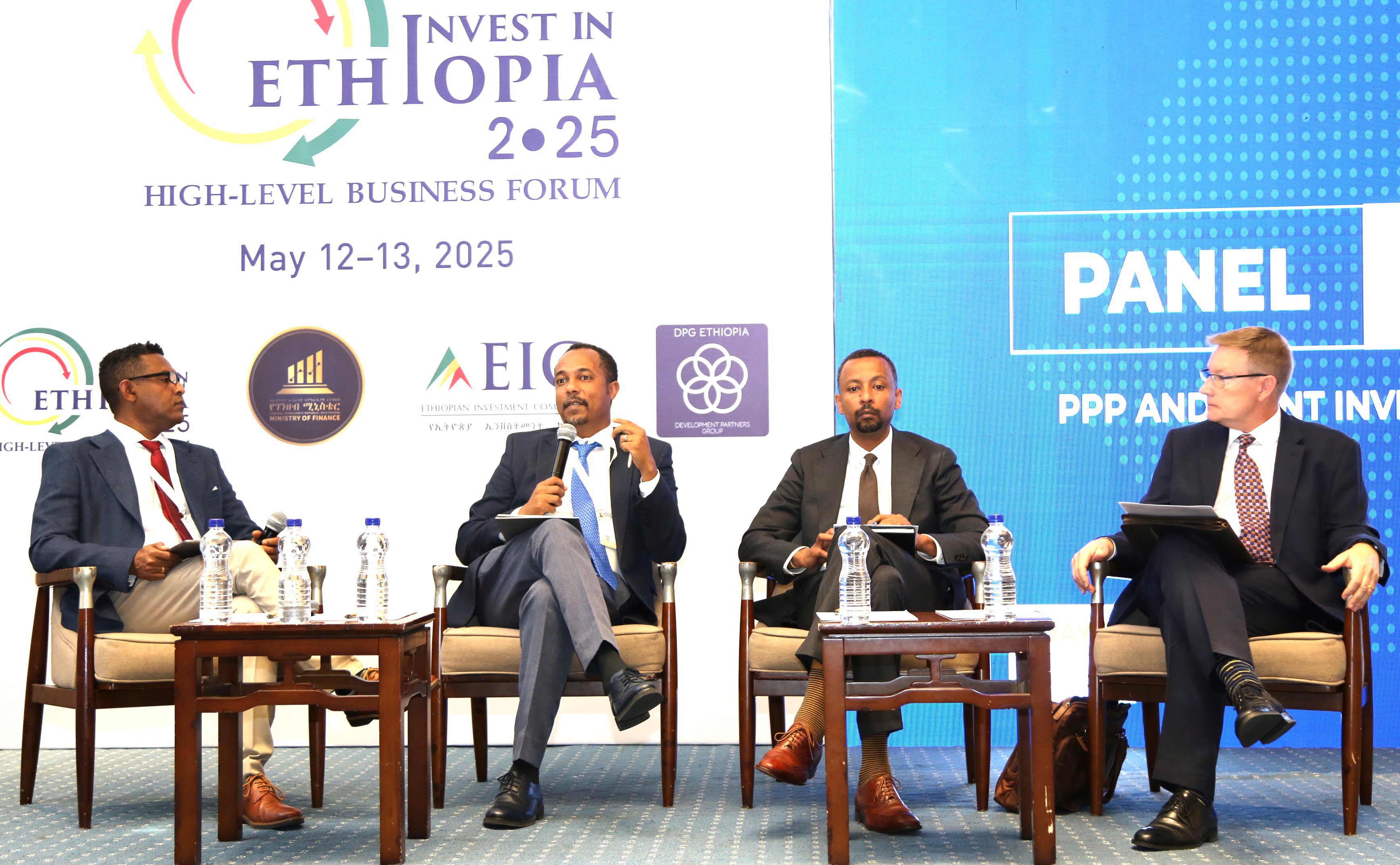Ethiopia Accelerates Transition to Private Sector-Led Growth with New PPP Framework - ENA English
Ethiopia Accelerates Transition to Private Sector-Led Growth with New PPP Framework

Addis Ababa, May 13, 2025 (ENA) -- Ethiopia is undergoing a significant economic transformation, shifting decisively towards a private sector-led growth model, a key message delivered during a high-level session on Public Private Partnerships (PPP) and Joint Investments with the Government on day two of the Invest in Ethiopia High Level Business Forum 2025.
The session featured insights from Ambassador Darren Welch, British Ambassador to Ethiopia, Brook Taye, CEO of Ethiopian Investment Holding and Abebe Gebrehiwot, Director General of PPP within the Ministry of Finance.
Head of the Ethiopian Investment Holding, Brook Taye highlighted the profound changes in the country's investment framework over the past five to six years.
He underlined that the adoption of a formal PPP framework, supported by a comprehensive investment code, is a key reform agenda item aimed at attracting private capital and collaboration across vital sectors including energy, transport, telecommunications, healthcare, education, industrial parks, and digital infrastructure.
The event also featured parallel sessions focused on Manufacturing, Services, Mining, and Energy.
Brook elaborated on the role of the Ethiopian Investment Holding, describing it as the country's sovereign wealth fund, managing approximately 47-48 billion USD worth of assets.
EIH functions as an active owner of state assets and, critically, as an investment partner.
In its investment capacity, EIH engages "as investors with partners", often taking a minority shareholder position while contributing equity, land inclusion, and regulatory support to accelerate joint ventures.
Described as a "commercial entity", EIH's focus is on generating revenue and profitability from its managed assets. Dr. Brook noted that EIH companies have generated substantial revenue, tax contributions, and dividends to the government, highlighting its commercial principle, transparency, predictability, efficiency, cash resources, land availability, and regulatory support as attractive features for private investors.
EIH is currently developing over 38 joint ventures across various sectors and is exploring the creation of funds with partners like the African Development Bank and UNDP for co-investment, including support for startups and expansion projects. Public offerings for some state assets are also a long-term consideration.
Head of the PPP at the Ministry of Finance, Abebe Gebrehiwot, explained that the PPP framework was introduced partly due to the government facing significant debt stress from managing infrastructure investments, aiming to leverage private sector finance and capabilities.
Abebe stated, "the door is open for any sort of private sector with actual potential and capacity to invest in Ethiopia". Key enablers for PPPs include adopting a new convention to secure investors through arbitration and reforms addressing forex availability and repatriation guarantees, allowing foreign investors to open offshore accounts.
Ongoing PPP projects encompass housing, energy, logistics, and health sectors, he said adding that unsolicited proposals from domestic and foreign investor consortia are welcome, provided they align with government objectives for expanding infrastructure and public services.
Ambassador Darren Welch commented on the evolution of the UK's support for Ethiopia, shifting from traditional development assistance towards technical assistance and economic reform. The UK was a strong advocate for Ethiopia's IMF and World Bank support packages, viewing the country as a potential future "economic powerhouse".
According to the ambassador, UK support includes improving the business environment (tax reform, ports, and logistics), mobilizing private capital through initiatives like the Manufacturing Africa program which has mobilized over 300 million USD, and deploying British development finance in strategic sectors such as telecoms, banking, geothermal, and supporting the new securities exchange.
Ambassador Welch cited Safaricom as a notable example of successful collaboration, which has significantly reduced mobile data prices, and United Green's 300 million USD integrated farm joint venture with EIH as another key project.
Offering advice to investors, Ambassador Welch noted that while the market demands patience, an appetite for the unexpected, deep pockets, and a real long-term perspective, it is a transformed market with significant potential. He recommended building strong local relationships and diligent risk management.
For the government, he advised a holistic approach connecting economic reform to broader policy areas like security, predictability, and ease of travel, and urged them to cherish existing investors.